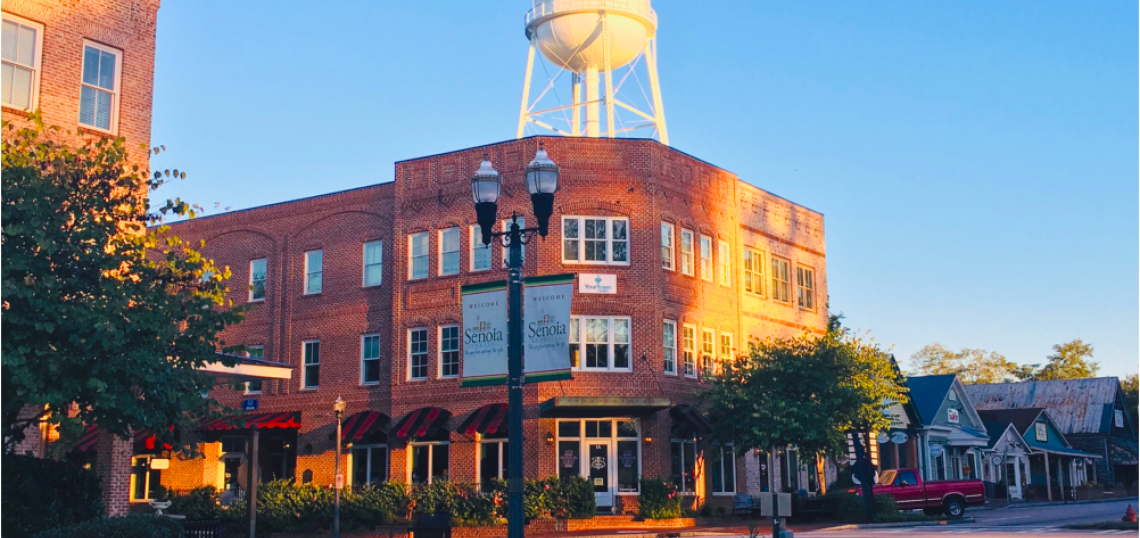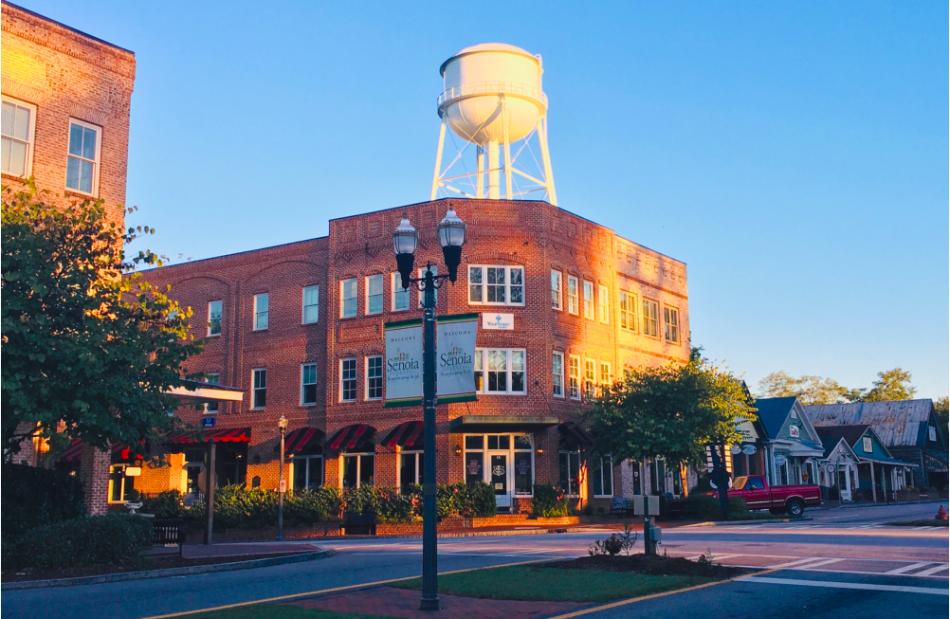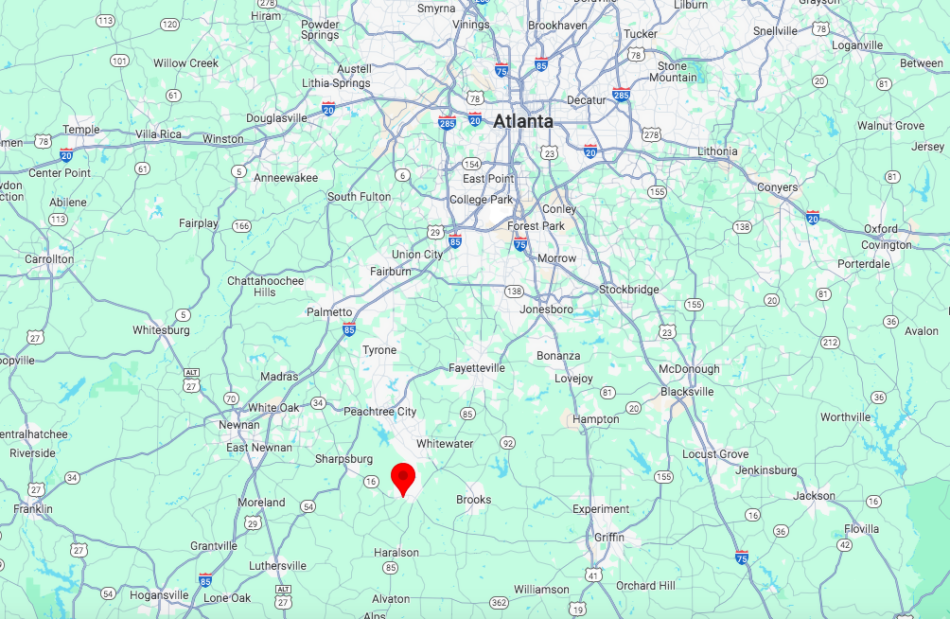As another example of the south metro’s allure for developers, a mixed-use proposal large enough to significantly alter the population of a Coweta County town made famous by The Walking Dead has entered the pipeline.
According to a Development of Regional Impact filing submitted last month to the Georgia Department of Community Affairs, local developers are proposing a mix of commercial space and 658 housing units, ranging from apartments to standalone homes, on the southwest side of Senoia’s charming downtown, which dates to the 1860s.
Referred to as the “141 South Project,” the proposal from Senoia-based Jeff Lindsey Communities would replace 152 wooded acres on the south side of Ga. Highway 16’s intersection with Pylant Street. (For context, Atlanta’s Grant Park greenspace is significantly smaller at 131 acres.)
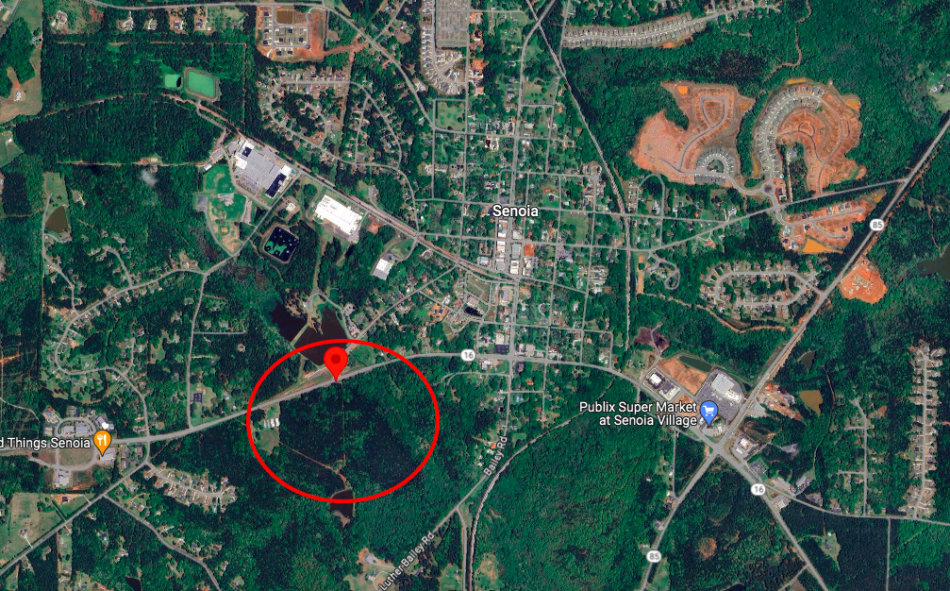 Approximation of where the 152-acre development would replace wooded acreage just southwest of downtown Senoia. Google Maps
Approximation of where the 152-acre development would replace wooded acreage just southwest of downtown Senoia. Google Maps
The scale suggests practically a new town in itself: 246 single-family homes would be joined by 112 attached townhomes and roughly 300 multifamily apartments, along with 86,800 square feet of commercial space to include retail and offices, according to the DRI application.
The filing, made by Jeff Lindsey Communities vice president of land acquisition James Nicholson, indicates developers will seek annexation into Senoia as well as rezoning. Today, the property straddles Senoia’s city limits and unincorporated Coweta County.
Situated about 38 miles south of downtown Atlanta, Senoia was transformed into post-apocalyptic “Woodbury” for season three of The Walking Dead—and elevated into a popular tourist attraction for fans of AMC’s mega-hit show in real life. Filming around Senoia continued until 2022, and according to the AJC, Senoia’s pre-Walking Dead population of 3,500 had swelled to more than 5,000 by the time the zombies shuffled out of town.
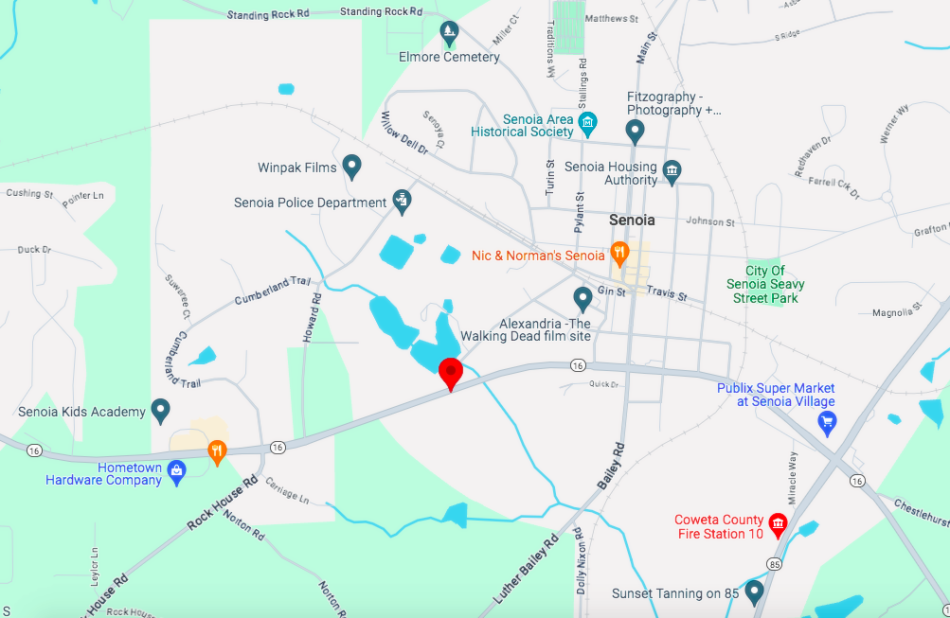 The Jeff Lindsey Communities proposal's location in relation to downtown and several Walking Dead landmarks. Google Maps
The Jeff Lindsey Communities proposal's location in relation to downtown and several Walking Dead landmarks. Google Maps
The DRI designation applies to developments with such large scales they stand to impact the region beyond the government jurisdiction in which they’re built, in terms of infrastructure and resources. Local governments have the final say, however, in whether the projects can move forward.
The DRI threshold for housing projects in metro Atlanta applies to proposals with 400 or more housing units or lots—and land areas of 120 acres or more for mixed-use developments.
Jeff Lindsey Communities’ projections call for spending $250 million on the development by the time it’s finished. An estimated $14.6 million in annual property and sales tax revenues would be generated for local coffers after that, according to the DRI submission.
One tradeoff would be the 1,120 extra vehicle trips the project is expected to generate during peak hours each day, the developers estimate.
The homebuilder is active across the south metro in places such as Newnan, Senoia, and Fayetteville, in addition to Columbus and parts of Alabama. One modern farmhouse-style home project in Senoia called Grove Park is selling its second phase now, with starting prices in the $500,000s.
According to the DRI paperwork, the 141 South project could take a decade to complete, potentially finishing in spring 2034.
...
Follow us on social media:
Twitter / Facebook/and now: Instagram
• Outside Atlanta, 'Walking Dead' star's sweet modern estate for sale (Urbanize Atlanta)




